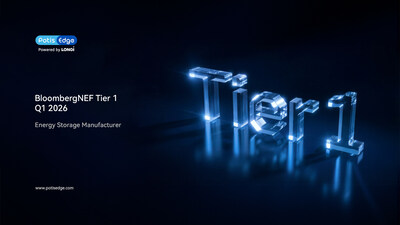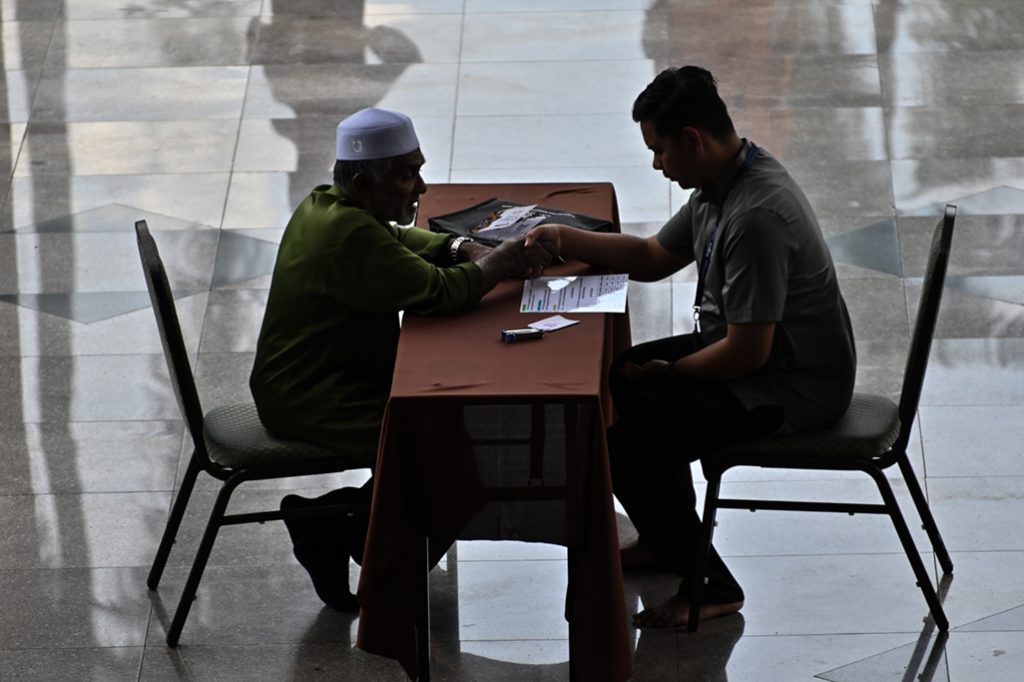TAIPEI, Feb. 3, 2026 /PRNewswire/ — Chunghwa Telecom Co., Ltd. (TAIEX: 2412, NYSE: CHT) (“Chunghwa” or “the Company”) today reported its un-audited operating results for the fourth quarter of 2025. All figures were prepared in accordance with Taiwan-International Financial Reporting Standards (“T-IFRSs”) on a consolidated basis.
(Comparisons throughout the press release, unless otherwise stated, are made with regard to the prior year period.)
Fourth Quarter 2025 Financial Highlights
– Total revenue increased by 0.5% to NT$ 65.65 billion.
– Consumer Business Group revenue increased by 5.9% to NT$ 39.54 billion.
– Enterprise Business Group revenue decreased by 7.9% to NT$ 22.02 billion.
– International Business Group revenue increased by 2.5% to NT$ 2.56 billion.
– Total operating costs and expenses increased by 0.7% to NT$ 54.15 billion.
– Operating income decreased by 2.2% to NT$ 11.38 billion.
– EBITDA decreased by 0.2% to NT$ 21.55 billion.
– Net income attributable to stockholders of the parent increased by 3.2% to NT$ 9.29 billion.
– Basic earnings per share (EPS) was NT$1.20.
Full Year 2025 Financial Highlights
– Total revenue increased by 2.7% to NT$236.11 billion.
– Consumer Business Group revenue increased by 2.4% to NT$ 143.37 billion.
– Enterprise Business Group revenue increased by 2.5% to NT$ 77.24 billion.
– International Business Group revenue decreased by 4.1% to NT$ 9.52 billion.
– Total operating costs and expenses increased by 2.3% to NT$ 187.45 billion.
– Operating income increased by 3.6% to NT$ 48.55 billion.
– EBITDA increased by 2.6% to NT$ 88.77 billion.
– Net income attributable to stockholders of the parent increased by 4.0% to NT$ 38.69 billion.
– Basic earnings per share (EPS) was NT$4.99.
– Total revenue, operating income, net income attributable to stockholders of the parent, and EPS all exceeded the high-end target of our full-year guidance.
“We concluded 2025 with strong momentum, delivering our highest fourth quarter revenue in nearly a decade at NT$65.65 billion and achieving full year results that met or exceeded all upper end guidance,” stated Mr. Chih‑Cheng Chien, Chairman and CEO of Chunghwa Telecom. “Full year revenue reached an all‑time high, rising 2.7% year over year, supported by continued strength in our core businesses and steady expansion in the ICT sector. Full year EPS reached an eight‑year high at NT$4.99, while in the fourth quarter EPS of NT$1.20 also marked a ten‑year high for the fourth quarter. These results reflect the resilience of our operations and the disciplined execution of our long‑term strategy focused on digital innovation and operational excellence.”
“Our Consumer Business Group delivered solid fourth quarter performance, supported by strong mobile momentum, rising 5G penetration rate, and another record high in broadband ARPU revenue. Our mobile revenue share increased to 41%, further reinforcing our leadership position. On the enterprise side, although most of our major ICT projects had already been recognized in previous quarters, we saw strong momentum in key ICT segments, including IDC, big data, and 5G private network services, driven by customers’ accelerating digital transformation needs. Our International Business Group delivered 2.5% revenue growth, with 12% year-over-year revenue increase in the Southeast Aisa market as we completed multiple plant construction projects in Singapore and Thailand, a trend that we expect to continue through 2026,” said Mr. Rong-Shy Lin, President of Chunghwa Telecom.
“Looking ahead to 2026, we will continue strengthening our technology capabilities,” Mr. Lin added. With our satellites of OneWeb and SES commencing operation in 2025, the Astranis satellite will join in the second half of 2026, further enhancing our multi-layer satellite capabilities and driving billion-dollar-level business growth. Meanwhile, our expansion into pre-6G opportunities—covering AIoT, satellite and big data services—are expected to bring us the combined revenues surpassing ten billion NT-dollar in 2026. On sustainability, we secured 4.6 billion kWh of green power through a 20-year CPPA to accelerate 2045 net-zero roadmap and received multiple awards. We are committed to building a future-ready digital infrastructure that leverages AI capabilities while delivering long-term, sustainable value for our stakeholders.”
Revenue
Chunghwa Telecom’s total revenues for the fourth quarter of 2025 increased by 0.5% to NT$ 65.65 billion.
Consumer Business Group’s revenue for the fourth quarter of 2025 increased by 5.9% YoY to NT$ 39.54 billion, supported by steady increases in both mobile and fixed broadband services, plus higher sales driven by iPhone demand. However, its income before tax slightly decreased by 0.3% year-over-year, mainly dragged by the final phase of 3G telecom equipment impairment, which has now been fully recognized, and a higher comparison base from government subsidies recorded in the same period last year.
Enterprise Business Group’s revenue for the fourth quarter of 2025 decreased 7.9% YoY to NT$ 22.02 billion, as most of our major ICT projects had already been recognized in previous quarters. Income before tax decreased by 4.5%, mainly impacted by the one-time impairment mentioned earlier. Encouragingly, EBG’s mobile and fixed broadband services, as well as its satellite service, still delivered solid growth momentum this quarter.
International Business Group’s revenue for the fourth quarter of 2025 increased by 2.5% to NT$ 2.56 billion and income before tax increased by 1.8% year-over-year, driven by rising demand for international IDC services and stronger roaming revenue. Furthermore, we are pleased to report that our submarine cables, SJC2 and the first phase of Apricot, were completed this quarter and further boosted IBG’s fixed line service revenue by 2.2% year-over-year.
Total revenue for the full year of 2025 increased by 2.7%, or 6.15 billion, to NT$236.11 billion, mainly due to continued strong performance in sales, ICT, mobile, and broadband services.
Operating Costs and Expenses
Total operating costs and expenses for the fourth quarter of 2025 increased by 0.7% to NT$ 54.15 billion, mainly due to the higher manpower cost and the growing sales.
Total operating costs and expenses for 2025 increased by 2.3% to NT$ 187.45 billion, mainly due to the higher manpower cost and the growing sales.
Operating Income and Net Income
Operating income for the fourth quarter of 2025 decreased by 2.2% to NT$ 11.38 billion. The operating margin was 17.34%, as compared to 17.83% in the same period of 2024. Net income attributable to stockholders of the parent increased by 3.2% to NT$ 9.29 billion. Basic earnings per share was NT$1.20.
Income from operations for 2025 increased by 3.6% to NT$ 48.55 billion. The operating margin was 20.56%, compared to 20.38% for 2024. Net income attributable to stockholders of the parent increased by 4.0% to NT$ 38.69 billion. Basic earnings per share was NT$4.99.
Cash Flow and EBITDA
Cash flow from operating activities, as of December 31st, 2025, decreased by 2.2% year over year to NT$ 77.50 billion.
Cash and cash equivalents, as of December 31st, 2025, increased by 2.3% to NT$ 37.09 billion as compared to that as of December 31st, 2024.
EBITDA for the fourth quarter of 2025 was NT$ 21.55 billion, decreasing by 0.2% year over year. EBITDA margin was 32.82%, as compared to 33.06% in the same period of 2024.
EBITDA for 2025 increased by 2.6 % to NT$ 88.77 billion, and EBITDA margin was 37.60%, compared to 37.61% for 2024.
Business Highlights
Mobile
As of December 31st, 2025, Chunghwa Telecom had 13.24 million mobile subscribers, representing a 0.9% year-over-year increase. In the fourth quarter, total mobile service revenue increased by 4.7% to NT$ 17.68 billion, while mobile post-paid ARPU excluding IoT SIMs grew 3.6% year over year to NT$ 572.
Fixed Broadband/HiNet
As of December 31st, 2025, the number of broadband subscribers slightly increased by 0.5% to 4.45 million. The number of HiNet broadband subscribers increased by 1.4% to 3.73 million. In the fourth quarter, total fixed broadband revenue grew 3.8% year over year to NT$ 11.88 billion, while ARPU increased 3.3% to NT$ 819.
Fixed line
As of December 31st, 2025, the number of fixed-line subscribers was 8.63 million.
(in NT$ billion)
|
2025 |
2024 |
YoY% |
||||
|
Oct.-Dec. |
Jan.-Dec. |
Oct.-Dec. |
Jan.-Dec. |
Oct.-Dec. |
Jan.-Dec. |
|
|
Revenue |
65.65 |
236.11 |
65.30 |
229.97 |
0.5 |
2.7 |
|
Operating costs and expenses |
54.15 |
187.45 |
53.78 |
183.22 |
0.7 |
2.3 |
|
Other income and expense |
-0.12 |
-0.11 |
0.13 |
0.12 |
-191.5 |
-192.0 |
|
Operating income |
11.38 |
48.55 |
11.65 |
46.87 |
-2.2 |
3.6 |
|
Income before tax |
12.18 |
50.26 |
11.93 |
47.75 |
2.1 |
5.3 |
|
Net income attributable to stockholders of the parent |
9.29 |
38.69 |
9.00 |
37.22 |
3.2 |
4.0 |
|
EBITDA |
21.55 |
88.77 |
21.58 |
86.49 |
-0.2 |
2.6 |
|
EPS(NT$) |
1.20 |
4.99 |
1.16 |
4.80 |
3.2 |
4.0 |
2026 Guidance
For 2026, the Company expects its total revenue to increase by NT$ 5.88~NT$7.57 billion, or 2.5%~3.2%, to NT$241.99~NT$243.68 billion as compared to the un-audited consolidated total revenue of 2025. Operating costs and expenses for 2026 are expected to increase by NT$6.54~NT$7.01 billion, or 3.5%~3.7%, to NT$193.99~NT$194.46 billion as compared to the prior year. Income from operations is expected to range from a decrease of NT$0.41 to an increase of NT$1.11 billion, or -0.8%~2.3% to NT$48.14~NT$49.66 billion as compared to the prior year. Income before income tax, net income attributable to stockholders of the parent and net earnings per share are expected to be NT$48.71~NT$50.23 billion, NT$37.39~NT$38.94 billion and NT$4.82~NT$5.02, respectively, representing a decrease of NT$0.03 to an increase of NT$1.55 billion, a decrease of NT$1.30 to an increase of NT$ 0.25 billion and a decrease of NT$0.17 to an increase of NT$0.03 respectively, year over year.
Acquisition of Property, Plant and Equipment in 2026 is expected to increase by NT$4.07 billion to NT$31.91 billion as compared to the prior year, owing to the new construction of domestic and international submarine cable, the deployment of multi-orbit satellite networks, the expansion of cloud AI internet data center, the investments in maintaining a competitive edge of mobile and fix broadband business, the enhancement regarding to the resilience of power and air conditioning equipment, as well as information security and cybersecurity infrastructure.
|
(NT$ billion except EPS) |
2026(F) |
2025 (un-audited) |
change |
YoY(%) |
|
Revenue |
241.99~243.68 |
236.11 |
5.88~7.57 |
2.5%~3.2% |
|
Operating Costs and Expenses |
193.99~194.46 |
187.45 |
6.54~7.01 |
3.5%~3.7% |
|
Other Income and Expense |
0.14~0.44 |
(0.11) |
0.25~0.55 |
227.3%~500.0% |
|
Income from Operations |
48.14~49.66 |
48.55 |
(0.41)~1.11 |
(0.8%)~2.3% |
|
Non-operating Income |
0.57 |
1.71 |
(1.14) |
(66.7 %) |
|
Income before Income Tax |
48.71~50.23 |
50.26 |
(1.55)~(0.03) |
(3.1%)~(0.1%) |
|
Net Income Attributable to Stockholders of The Parent |
37.39~38.94 |
38.69 |
(1.30)~0.25 |
(3.4%)~0.6% |
|
EPS(NT$) |
4.82~5.02 |
4.99 |
(0.17)~0.03 |
(3.4%)~0.6% |
|
EBITDA |
90.27~91.79 |
88.77 |
1.50~3.02 |
1.7%~3.4% |
|
EBITDA Margin |
37.3%~37.7% |
37.6 % |
(0.3%)~0.1% |
|
|
Acquisition of Material Assets |
34.27 |
29.71 |
4.56 |
15.3 % |
|
Acquisition of Property, Plant and Equipment and Intangible Assets |
31.91 |
27.84 |
4.07 |
14.6 % |
|
Others |
2.36 |
1.87 |
0.49 |
26.2 % |
|
Disposal of Material Assets |
– |
0.91 |
(0.91) |
(100 %) |
Note 1: “Other income and expenses” includes gains (losses) on disposal of property, plant and equipment (PP&E) and investment property, and impairment loss on PP&E and investment property.
Note 2: The calculation of growth rates is based on NT$ thousand.
Financial Statements
Financial statements and additional operational data can be found on the Company’s website at http://www.cht.com.tw/en/home/cht/investors/financials/quarterly-earnings
NOTE CONCERNING FORWARD-LOOKING STATEMENTS
This press release contains forward-looking statements. These statements constitute “forward-looking” statements within the meaning of Section 27A of the Securities Act of 1933, as amended, and Section 21E of the Securities Exchange Act of 1934, as amended, and as defined in the U.S. Private Securities Litigation Reform Act of 1995. These forward-looking statements can be identified by terminology such as “will,” “expects,” “anticipates,” “future,” “intends,” “plans,” “believes,” “estimates” and similar statements. Statements that are not historical facts, including statements about Chunghwa’s beliefs and expectations, are forward-looking statements. Forward-looking statements involve inherent risks and uncertainties that could cause actual results to differ materially from the forward-looking statements. A number of important factors could cause actual results to differ materially from those contained in any forward-looking statement. Investors are cautioned that actual events and results could differ materially from those statements as a result of a number of factors including, but not limited to the risks outlined in Chunghwa’s filings with the U.S. Securities and Exchange Commission on Forms F-1, F-3, 6-K and 20-F, in each case as amended. The forward-looking statements in this press release reflect the current belief of Chunghwa as of the date of this press release and Chunghwa undertakes no obligation to update these forward-looking statements for events or circumstances that occur subsequent to such date, except as required under applicable law.
This press release is not an offer of securities for sale in the United States. Securities may not be offered or sold in the United States absent registration or an exemption from registration. Any public offering of securities to be made in the United States will be made by means of a prospectus that may be obtained from the issuer or selling security holder and that will contain detailed information about the company and management, as well as financial statements.
NON-GAAP FINANCIAL MEASURES
To supplement the Company’s consolidated financial statements presented in accordance with International Financial Reporting Standards pursuant to the requirements of the Financial Supervisory Commission, or T-IFRSs, Chunghwa Telecom also provides EBITDA, which is a “non-GAAP financial measure”. EBITDA is defined as consolidated net income (loss) excluding (i) depreciation and amortization, (ii) total net comprehensive financing cost (which is comprised of net interest expense, exchange gain or loss, monetary position gain or loss and other financing costs and derivative transactions), (iii) other income, net, (iv) income tax, (v) (income) loss from discontinued operations.
In managing the Company’s business, Chunghwa Telecom relies on EBITDA as a means of assessing its operating performance because it excludes the effect of (i) depreciation and amortization, which represents a non-cash charge to earnings, (ii) certain financing costs, which are significantly affected by external factors, including interest rates, foreign currency exchange rates and inflation rates, which have little or no bearing on our operating performance, (iii) income tax (iv) other expenses or income not related to the operation of the business.
CAUTIONS ON USE OF NON-GAAP FINANCIAL MEASURES
In addition to the consolidated financial results prepared under T-IFRSs, Chunghwa Telecom also provide non-GAAP financial measures, including “EBITDA”. The Company believes that the non-GAAP financial measures provide investors with another method for assessing its operating results in a manner that is focused on the performance of its ongoing operations.
Chunghwa Telecom’s management believes investors will benefit from greater transparency in referring to these non-GAAP financial measures when assessing the Company’s operating results, as well as when forecasting and analyzing future periods. However, the Company recognizes that:
- these non-GAAP financial measures are limited in their usefulness and should be considered only as a supplement to the Company’s T-IFRSs financial measures;
- these non-GAAP financial measures should not be considered in isolation from, or as a substitute for, the Company’s T-IFRSs financial measures;
- these non-GAAP financial measures should not be considered to be superior to the Company’s T-IFRSs financial measures; and
- these non-GAAP financial measures were not prepared in accordance with T-IFRSs and investors should not assume that the non-GAAP financial measures presented in this earnings release were prepared under a comprehensive set of rules or principle.
Further, these non-GAAP financial measures may be unique to Chunghwa Telecom, as they may be different from non-GAAP financial measures used by other companies. As such, this presentation of non-GAAP financial measures may not enhance the comparability of the Company’s results to the results of other companies. Readers are cautioned not to view non-GAAP results as a substitute for results under T-IFRSs, or as being comparable to results reported or forecasted by other companies.
About Chunghwa Telecom
Chunghwa Telecom (TAIEX 2412, NYSE: CHT) (“Chunghwa” or “the Company”) is Taiwan’s largest integrated telecommunications services company that provides fixed-line, mobile, broadband, and internet services. The Company also provides information and communication technology services to corporate customers with its big data, information security, cloud computing and IDC capabilities, and is expanding its business into innovative technology services such as IoT, AI, etc. Chunghwa has been actively and continuously implemented environmental, social and governance (ESG) initiatives with the goal to achieve sustainability and has won numerous international and domestic awards and recognitions for its ESG commitments and best practices. For more information, please visit our website at www.cht.com.tw
Contact: Angela Tsai
Phone: +886 2 2344 5488
Email: chtir@cht.com.tw
![]() View original content:https://www.prnewswire.com/news-releases/chunghwa-telecom-reports-un-audited-consolidated-operating-results-for-the-fourth-quarter-of-2025-302677394.html
View original content:https://www.prnewswire.com/news-releases/chunghwa-telecom-reports-un-audited-consolidated-operating-results-for-the-fourth-quarter-of-2025-302677394.html
SOURCE Chunghwa Telecom Co., Ltd.

The post Chunghwa Telecom Reports Un-Audited Consolidated Operating Results for the Fourth Quarter of 2025 appeared first on The Malaysian Reserve.




















